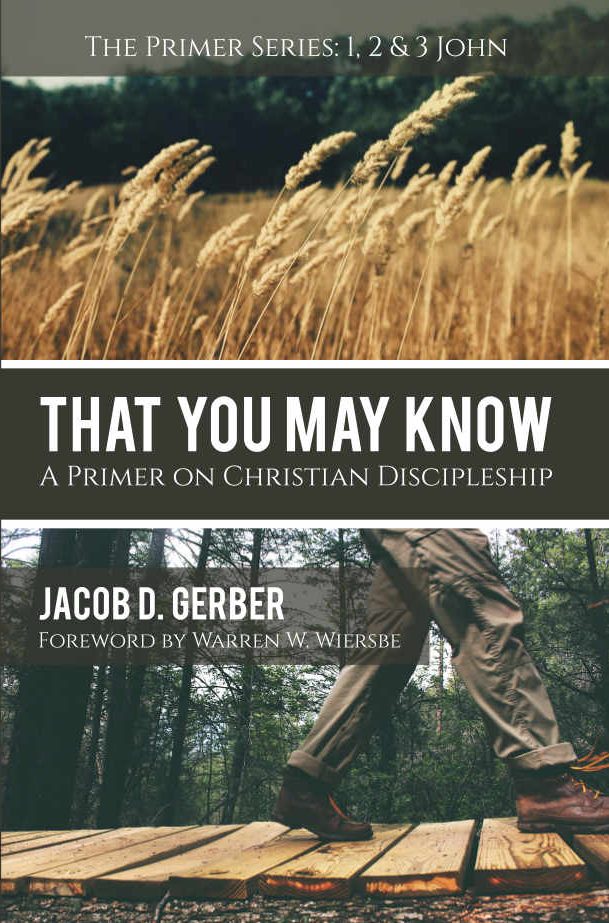Books

While there are many books written about Christian discipleship, there are not nearly enough books on discipleship that primarily expound the Bible itself. The Apostle John wrote three letters, however, with the main purpose of helping disciples to grow.
That You May Know: A Primer on Christian Discipleship is an enriching study that will lead you through John’s teaching on following Jesus as a disciple.
This book is more than a commentary and more than a topical book on the subject of Christian discipleship. Instead, this is a primer on Christian discipleship written as a careful reading of God’s word in 1, 2 & 3 John. It’s ideal for your own individual devotional reading or as a helpful resource for your group Bible study.
Download the First Two Chapters of That You May Know for Free
Bible Studies: Paul's Letter to the Philippians
Studies from my forthcoming pastoral commentary on Paul’s Letter to the Philippians, Have This Mind: A Primer on the Cruciform Life.
Access the complete set of Bible studies from Philippians here.
Bible Studies: The Gospel of John
Access the complete set of Bible studies from the Gospel of John here.
Bible Studies: The Book of Genesis
Access the complete set of Bible studies from Genesis here.
Bible Studies: Paul's First Letter to the Corinthians
Access the current set of Bible studies from 1 Corinthians here.
Bible Studies: The Letters of John
Access the complete set of Bible studies from the Letters of John here.
Bible Studies: The Gospel of Luke
Access a handful of Bible studies from the Gospel of Luke here. These were studies written during the Advent season of 2018. At the moment, I do not have plans to continue working through the Gospel of Luke; however, I wanted to make these few studies available online for whomever may benefit from them.
Bible Studies: The Book of Ecclesiastes
Access the complete set of Bible studies from the Book of Ecclesiastes here.
Bible Studies: The Gospel of Matthew
Matthew 10:34–42: Jesus Divides the Earth
As Jesus tells his disciples more about their mission, he shocks them once again by declaring that he came to bring a sword, not peace. Jesus defines the right side of history. (Exposition of Matthew 10:34–42)
Matthew 10:26–33: Therefore, Do Not Fear
Jesus’ disciples will face many dangers from the world. Nevertheless, Jesus draws a surprising conclusion from this: we should not fear, since Jesus reveals himself through our preaching. (Exposition of Matthew 10:26–33)
Matthew 10:16–25: Wise as Serpents, and Innocent as Doves
While Jesus confronts his disciples about the necessity of their suffering, he also provides them hope. Jesus conforms us to his image in our suffering. (Exposition of Matthew 10:16–25)
Matthew 10:1–15: Sending Out the Twelve
In order to reach the lost sheep of the house of Israel, Jesus sends out his disciples to minister in his name. Jesus sends ministers to administer the authority of his kingdom (Exposition of Matthew 10:1–15)
Matthew 9:35–38: Plentiful Harvest, Few Workers
In the second major section of the Gospel of Matthew, Jesus calls his disciples to join him in his work. Jesus shepherds his sheep through undershepherds. (Exposition of Matthew 9:35–38)
Matthew 9:27–34: The Merciful Son of David
As concludes a cycle of healing miracles, will people respond to Jesus’ authority and compassion with trust? Jesus is the merciful Son of David. (Exposition of Matthew 9:27–34)






